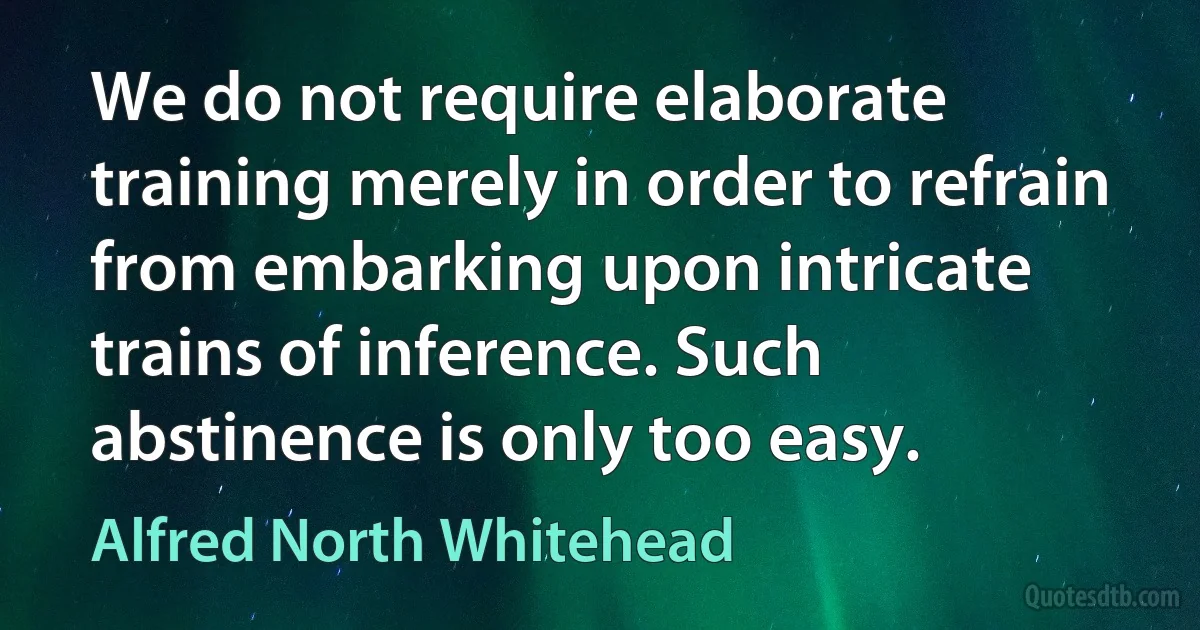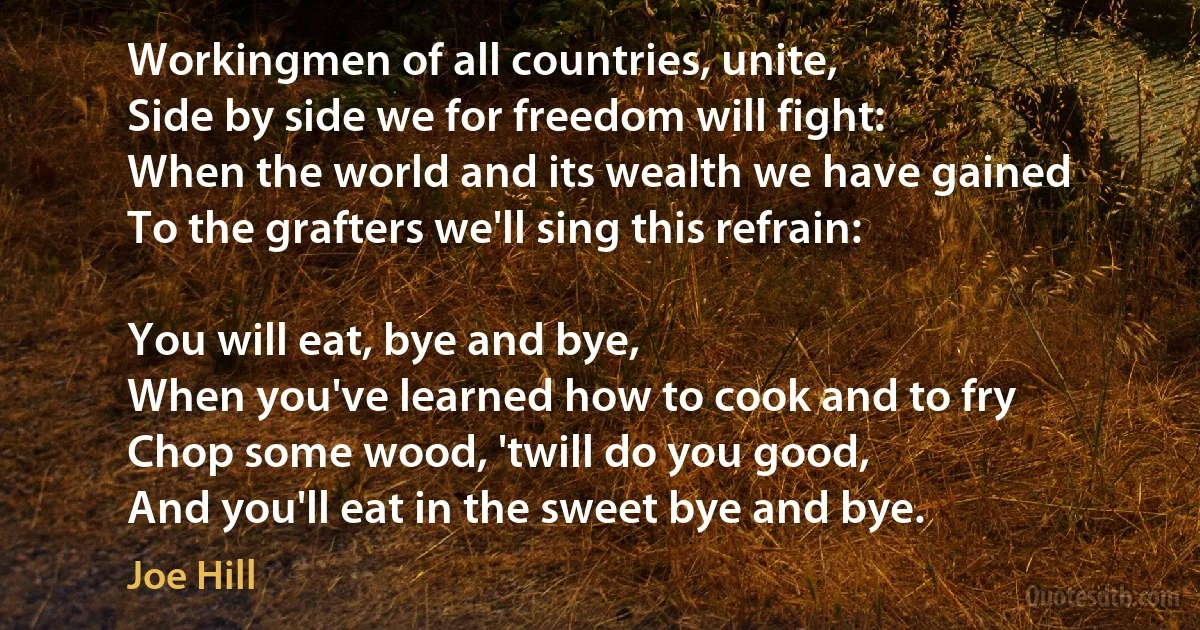Refrain Quotes - page 2
A man shall not be full of laughter and mockery, nor sad and mournful, but joyful. ... His desire shall not be so great that he rushes for wealth, nor shall he be lazy and refrain from working. But he shall live in contentment, have a modest occupation, and be occupied mainly with the Torah.

Maimonides
In the last 23 years, from the day I was stripped of my judgeship to the years of doing battle in the revolutionary courts of Tehran, I had repeated one refrain: an interpretation of Islam that is in harmony with equality and democracy is an authentic expression of faith. It is not religion that binds women, but the selective dictates of those who wish them cloistered. That belief, along with the conviction that change in Iran must come peacefully and from within, has underpinned my work.

Shirin Ebadi
Of my grandfather Verus I have learned to be gentle and meek, and to refrain from all anger and passion... I have learned both shamefastness and manlike behaviour. Of my mother I have learned to be religious, and bountiful; and to forbear, not only to do, but to intend any evil; to content myself with a spare diet, and to fly all such excess as is incidental to great wealth.

Marcus Aurelius
Throughout theological history we have been assured by religious leaders that if we perform certain rituals, repeat certain prayers or mantras, conform to certain patterns, suppress our desires, control our thoughts, sublimate our passions, limit our appetites and refrain from sexual indulgence, we shall, after sufficient torture of the mind and body, find something beyond this little life. And that is what millions of so-called religious people have done through the ages, either in isolation, going off into the desert or into the mountains or a cave or wandering from village to village with a begging bowl, or, in a group, joining a monastery, forcing their minds to conform to an established pattern. But a tortured mind, a broken mind, a mind which wants to escape from all turmoil, which has denied the outer world and been made dull through discipline and conformity - such a mind, however long it seeks, will find only according to its own distortion.

Jiddu Krishnamurti
So it was that I gave about 1949 my 'Lecture on Nothing' at the Artists' Club on Eighth Street in New York City (started by Robert Motherwell), which predated the popular one associated with Philip Pavia, Bill de Kooning, et al. ). This 'Lecture on Nothing' was written in the same rhythmic structure I employed at the time in my musical compositions (Sonatas and Interludes, Three Dances, etc.). One of the structural divisions was the repetition, some fourteen times, of a single page in which occurred the refrain, 'If anyone is sleepy let him go to sleep.' Jeanne Reynal, I remember, stood up part way through, screamed, and then said, while I continued speaking, 'John, I dearly love you, but I can't bear another minute.' She then walked out. Later, during the question period, I gave one of six previously prepared answers regardless of the question asked. This was a reflection of my engagement in Zen.

John Cage
I am prepared to waive the privilege against self-incrimination and to tell you everything you wish to know about my views or actions if your committee will agree to refrain from asking me to name other people. If the committee is unwilling to give me this assurance, I will be forced to plead the privilege of the fifth amendment at the hearing.

Lillian Hellman
Now and then I'll be a little brief with some of my band members. I won't talk or I'll refrain from talking to my band while we're rehearsing. But basically I am friendly with people. ... I'll go on cold streaks. I'll work with a collaborator then I'll stop calling the collaborator for a couple weeks. I'll say I need a break from you for a couple weeks. But they're "OK, fine, fine, I'll see you in two weeks."

Brian Wilson
[...] I observed he [Samuel Johnson] poured a large quantity of it [wine] into a glass, and swallowed it greedily. Everything about his character and manners was forcible and violent; there never was any moderation; many a day did he fast, many a year did he refrain from wine; but when he did eat, it was voraciously; when he did drink wine, it was copiously. He could practise abstinence, but not temperance.

James Boswell
Spinoza, then, emerged as the supreme philosophical bogeyman of Early Enlightenment Europe. Admittedly, historians have rarely emphasized this. It has been much more common, and still is, to claim that Spinoza was rarely understood and had very little influence, a typical example of an abiding historiographical refrain which appears to be totally untrue but nevertheless, since the nineteenth century, has exerted an enduring appeal for all manner of scholars. In fact, no one else during the century 1650–1750 remotely rivalled Spinoza's notoriety as the chief challenger of the fundamentals of revealed religion, received ideas, tradition, morality, and what was everywhere regarded, in absolutist and non-absolutist states alike, as divinely constituted political authority.

Baruch Spinoza



